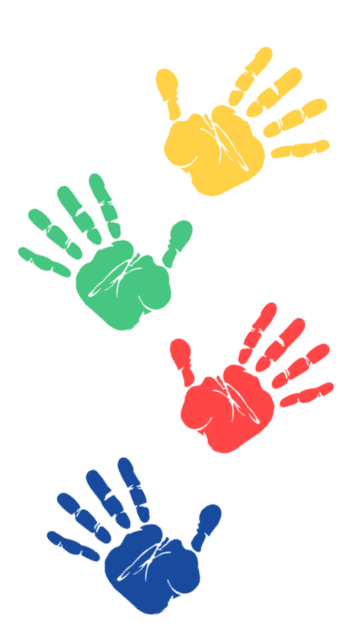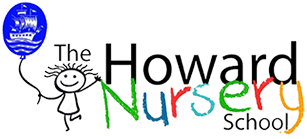EYFS & Local Offer
The Howard Nursery ensures that the four over arching guiding principles that shape Early Years Settings ( as set out in the Early Years Foundation Stage Framework) are fully embedded in the day to day life at the Nursery. We treat every child as a unique child, help them to learn through positive relationships in an enabling environment and recognise that children learn in different ways and at different rates.
The statutory Early Years Foundation Stage Framework states that there are seven areas of learning and development that must shape early years provision and The Howard Nursery are proud of the way that we fulfil each stage to bring out the best in every child and provide an excellent start to their learning journey. Each stage is listed below along with our own framework.
Communication and language
- Using songs and nursery rhymes of the week – in groups, giving children time to finish the rhyme, learning endings and developing memory.
- Listening and attention games - guess the sound, listening games outside, what can they hear in the environment.
- Encourage learning their friends and staff names.
- Making up jingles to support children’s sound development.
- Developing use of initial sounds – ‘ssssss’ sounds (snake, sun, sweet, sweep).
- Quiet book areas where children can read independently and reading with adults – using a focus book over a two week period.
- Sensory stories, songs and props
- Use approved phonics schemes to support speech, listening and sound development
Physical development
- Lots of space outside and within the Howard of Effingham grounds to run and move about in to play games together or alone e.g. Hide and seek games.
- Free flow access to our outdoor space – bikes, balls games, water play, sand play, chalk boards for mark making, covered raised area.
- Risky play - confidence climbing up the ramps, building obstacle courses.
- Water play, sand and play dough out every day where children can choose accessories they want to use in the media - boats to float in water, watering cans to get water for sandcastles, rolling pins and cutters for play dough.
- Sensory play - cornflour, playdough, a variety of different textures to explore and build muscles to support with early writing.
- Fine motor activities - tweezers and pompoms, buttons into a box, posting pencils into a box with holes in.
- Shopping baskets, jugs, containers so children can empty and fill them and carrying and transporting them.
- Music and movement sessions to encourage children to enjoy moving in different ways and listen to mu-sic rhythm.
- Resources for both left and right handed children.
- Heuristic play – learning and discovering how things work for yourself.
- Construction area – Lego, wooden blocks and accessories
Personal, social and emotional development
- We have ‘Golden Rules’ and expectation of children’s and staff behaviour.
- Morning time sessions to say hello to each other and increase confidence in saying name, discussing feelings, data of the day and socialising.
- End of day sessions to talk about what we have enjoyed and to say goodbye.
- Family photo books to support children when talking about their families and home life.
- Children and staff play together – having fun together for example ball games for turn taking and parachute games.
- Role play areas to reflect cultures and interests of children – hairdressers, bakery, travel agents.
- Small group sessions to extend and support children to make relationships.
- Feelings wall - so children can see and talk about their feelings.
- Snack time - snack bar every day where children serve themselves, choosing and making a preference of what they like and dislike.
- Lots of books – stories to read together and explore feelings of characters and themselves.
- Visual timetables to support routine of the day which is shown to all children at morning time - children with SEND individual now and next and visual timetables.
Literacy
- Lots of activities to focus on a child’s reading, writing and listening.
- Story book of the week.
- Reading stories with adults.
- Open access to a range of books in Book Corner.
- Puppets available so children can make up their own stories
- Phonics sessions with the Pre-schoolers
- Daily rhyme time sessions
- Audio stories for the children to listen to independently
- Story sacks
- Rhyming games
- Interactive stories on the computer
- Letters and Sounds small group work
- ‘Mark Making’ – early writing development and skills.
- Open access to pens, pencils, crayons, paper.
- Making story books with the children e.g. Our Woodland Walk
Mathematics
- Numeracy and Maths is looked at across all the areas of learning and all the activities that children take part in.
- Counting children in in the morning.
- Number songs with props.
- Cooking with ingredients – counting and weighing items.
- Numbers feature around all the pre-school.
- Sorting and ordering objects and shapes.
Understanding the world
- Planting in the raised beds.
- Trips in the community e.g. to the park, garden centre, post office, church
- Books represent different countries, cultures and communities.
- Celebrating and looking at traditions and festivals – making sure that every child’s cultural background is reflected and explored.
- Access to technology with adult supervision and guidance.
Expressive arts and design
- Music and Movement Sessions
- Musical instruments are available to children.
- Constant access to dressing up and art and craft resources.
- Recreate familiar stories in all areas of the Nursery e.g. We’re Going on a Bear Hunt together.
Please click here for Our Local Offer To Children and Families with Special or Additional Needs
Further information and services for young people in Surrey with special educational needs and disabilities (SEND), their families and professionals can be seen on the Surrey Local Offer website.
Click for links to more information on early learning and development


